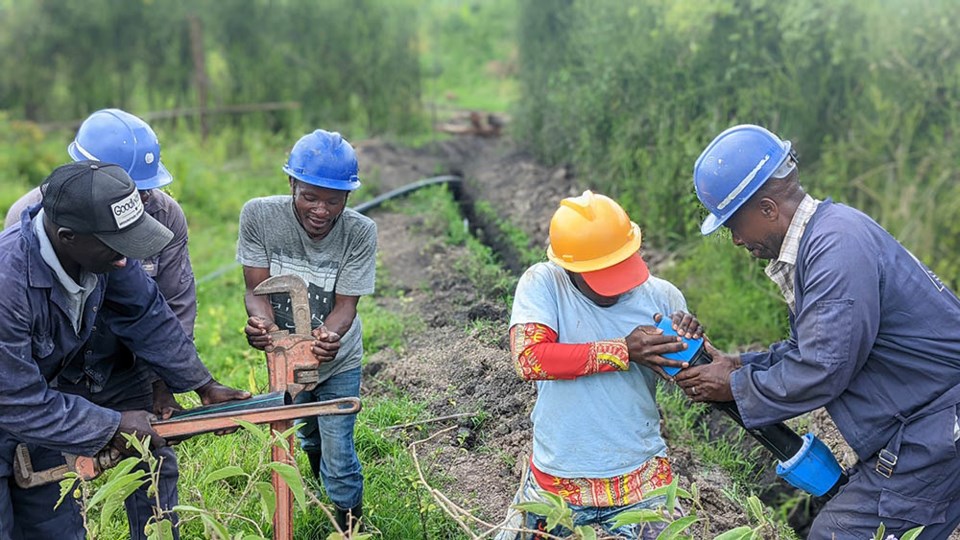A Richmond-based non-profit is teaming up with local and international Rotary clubs to deliver clean water to a remote area in Uganda.
Acts for Water is working to provide safe and clean drinking water for about 14,000 people living in Ibanda, a district in the southwest region of the country.
Jeff Golby, CEO of Acts for Water, said one-in-three kids in this remote area go without safe drinking water.
“What's unique about this area is they do indeed have clean water. It's just high up in the hills and (with) our technology, we're able to provide sustainable, clean (and) safe water by working alongside the community,” he said.
Uganda is a landlocked country in eastern Africa, which borders countries like Kenya to its east and South Sudan to its north.
The project involves building a gravity-flow system, where clean water from an aquifer is taken and delivered to tap stands in front of houses, schools and trading and health centres, said Golby.
Aquifers are bodies of porous rock or sediment that hold groundwater, according to the National Geographic.
Rather than people having to walk for an hour and a half for water from a swamp, they will be able to just walk outside their door to access it safely, Golby explained.
For about the next six months, more than 400 local volunteers will hand dig trenches that span about 40 kilometres, clear brush, haul pipes, channel water into a large reservoir tank and build the tap stands.
For another 12 months, the non-profit’s hygiene and sanitation team will lead a community program, which includes building latrines for children at schools and instructing families on the importance of handwashing and keeping a clean kitchen. The training aims to help with the prevention of diseases such as COVID-19 and waterborne ones, Golby said.
Acts for Water is working with Richmond Rotaries, including Richmond Sunrise, which has partnered with the non-profit for about four years and was the first club in the city to jump on the project. Other participating Rotaries include Tsawwassen and a local Ugandan one.
Rotary International is also lending its support, Golby said.
The Rotaries locally have been collaborating with club members in Uganda by coaching them and attending ground-breaking ceremonies. Rotaries in the Lower Mainland have also been running fundraisers and financially supporting the non-profit as well.
When the construction part of the project is completed, Golby said Rotaries here will be invited to Ibanda when the taps are turned on.
In terms of the project’s impact, Golby anticipates the enrolment of young girls in school will grow, which is something the non-profit saw a 48-per-cent increase of six months after its last project.
“We expect to see girl enrolment go up quite significantly because once clean water comes to (the) community, females will no longer have to spend hours outside of class walking to and from the swamp,” Golby said.
He also expects to see the lowest tier of earners more than double their income and the total elimination of waterborne diseases in the community.



